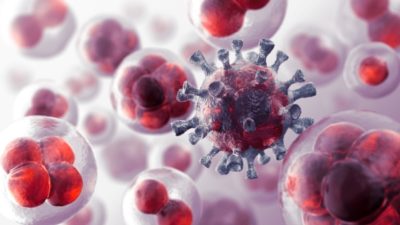| Course Credits | | 2 (1-3-4) |
| Course Abbrviation | | IMMUNOTECHNOLOGY |
| Course Title (TH) | | เทคโนโลยีทางภูมิคุ้มกันวิทยา |
| Course Title (EN) | | IMMUNOTECHNOLOGY |
| Responsible Unit | | Faculty of Science, Department of Microbiology |
| Type of Course | | International Course |
| Semester | | Intl 1st semester |
| Academic Year | | 2024 |
| Course Coordinator | | |
| Measurement Method | | |
| Type of Course | | Semester Course |
| Course Condition | | PRE 2312482 or Consent of Faculty |
| Course Status | | |
| Instructors / staffs | | |
| Enrollment conditions | | None |
| Degree level | | Bachelor |
| Related curricular | | Bachelor of Science in Biotechnology (2562) |
| | Bachelor of Science in Biotechnology (2567) |
| Course description (TH) | | บทนําและภาพรวมของระบบภูมิคุ้มกัน เซลล์และอวัยวะของระบบภูมิคุ้มกัน การตอบสนองของระบบภูมิคุ้มกันธรรมชาติของภูมิคุ้มกัน อันตรกิริยา และความหลากหลายของแอนติเจนและแอนติบอดี เทคนิคทางวิทยาภูมิคุ้มกันที่ใช้แอนติบอดี การผลิตมอโนคลอนัลแอนติบอดี บทนําของอิมมิวโนแอสเซย์ อีไลซา เรดิโออิมมิวโนแอสเซย์และอิมมิวโนแอสเซย์ประเภทอื่นๆ การทําให้อิมมิวโนโกบิวลินบริสุทธิ์ เทคนิคอิมมิวโนบล็อตติ้ง อิมมิวโนฮิสโตเคมีและอิมมิวโนไซโตเคมี การประยุกต์ใช้เชิงพาณิชย์ของเทคโนโลยีภูมิคุ้มกันวิทยา ปฏิบัติการด้านเทคนิคภูมิคุ้มกันวิทยา ปฏิบัติการด้านเทคนิคภูมิคุ้มกันวิทยาที่ใช้งานวิจัยทางจุลชีววิทยาที่เกี่ยวข้องกับหลักการการวางแผนและการออกแบบการทดลอง รวมถึงการแปลผลการอภิปรายผล |
| Course description (EN) | | Introduction and overview of an immune system, cells and organs of an immune system, immune response, nature of immune response, interactions and diversity of antigens and antibodies; immunological techniques using antibodies; monoclonal antibody production; introduction to immunoassay; ELISA; radioimmunoassay and other types of immunoassay; immunoglobulin purification; immunoblotting techniques; immunohistochemistry and immunohistochemistry; commercial applications of immunotechnology; practical work in immunological techniques used in microbiological research related to principles, experimental designs, results in experimentation and discussion. |
| Curriculum mapping | | CU-1.1: Behavioral Objectives Possessing well-rounded knowledge |
| | CU-1.2: Possessing in-depth knowledge |
| | CU-2.1: Being moral and ethical |
| | CU-2.2: Having an awareness of etiquette |
| | CU-3.1: Being able to think critically |
| | CU-3.2: Being able to think creatively |
| | CU-3.3: Having skills in problem solving |
| | CU-4.1: Having professional skills |
| | CU-4.2: Having communication skills |
| | CU-4.3: Having skills in information technology |
| | CU-4.4: Having mathematical and statistical skills |
| | CU-4.5: Having management skills |
| | CU-5.1: Having an inquiring mind |
| | CU-5.2: Knowing how to learn |
| | CU-5.3: Having leadership qualities |
| | CU-5.4: Maintaining well-being |
| | CU-5.5: Being community-minded and possessing social responsibility |
| | CU-5.6: Sustaining Thainess in a globalized world |
| | subPLO1.1 Explain biotechnology knowledge in practice. |
| / | subPLO1.2 Analyze biotechnology knowledge in practice. |
| | subPLO1.3 Apply biotechnology knowledge in practice. |
| / | PLO2 Employ biotechnology-related technology and scientific tools. |
| / | PLO3 Communicate effectively in English within the Biotechnology field |
| / | PLO4 Demonstrate behavior that aligns with ethical principles, moral values, and professional ethics. |
| / | PLO5 Demonstrate social responsibility, courage, and creativity. |
| Course learning outcome (CLO) | | 1. เพื่อให้นิสิตสามารถอธิบายหลักการของเทคโนโลยีทางภูมิคุ้มกันที่ใช้ในงานวิชัยทางจุลชีววิทยาได้ |
| | 2. สามารถอธิบายและออกแบบการทดลองอย่างเป็นชั้นตอนและสามารถวิเคราะห์ แปลผลและอภิปรายผลการทดลองได้ |

